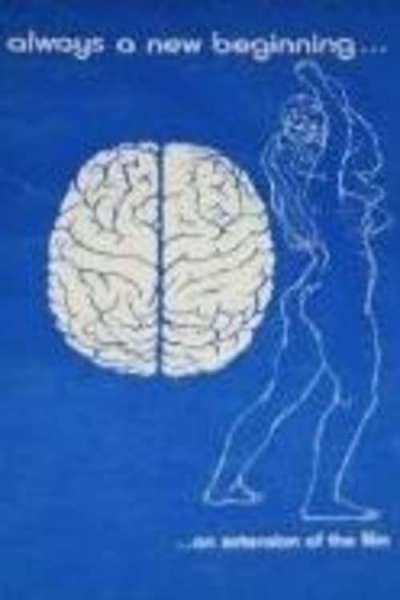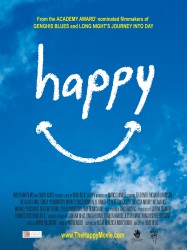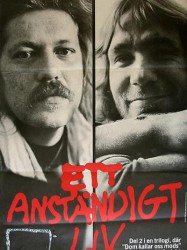Always a New Beginning est un film américain de genre Documentaire
Always a New Beginning (1974)

Si vous aimez ce film, faites-le savoir !
- Infos
- Casting
- Infos techniques
- Photos
- Vidéos
- Passages TV
- Citations
- Personnages
- Musique
- Récompenses
Always a New Beginning is a 1974 American documentary film directed by John D. Goodell, about the founding and operation of The Institutes for the Achievement of Human Potential. It was nominated for an Academy Award for Best Documentary Feature.
Commentaires
Postez un commentaire :
Suggestions de films similaires à Always a New Beginning
Il y a 8963 ayant les mêmes genres cinématographiques, 418 films qui ont les mêmes thèmes, pour avoir au final 70 suggestions de films similaires.Si vous avez aimé Always a New Beginning, vous aimerez sûrement les films similaires suivants :

Perversion for Profit (1965)
, 31minutesOrigine Etats-Unis
Genres Documentaire
Thèmes Maladie, Psychotrope, Sexualité, La pornographie, Documentaire sur le monde des affaires, Documentaire sur le cinéma, Documentaire sur le droit, Documentaire sur la santé
Acteurs Damian O'Flynn
Note38%






How to Die in Oregon (2011)
, 1h47Réalisé par Peter Richardson
Origine Etats-Unis
Genres Documentaire
Thèmes Maladie, Le suicide, Documentaire sur une personnalité, Documentaire sur la santé, Folie, Le handicap
Note81%





Through a 1994 ballot measure (Measure 16) named the Oregon Death with Dignity Act, Oregon became the first U.S. state and one of the first jurisdictions in the world to allow physician-assisted suicide. How to Die in Oregon covers the background of the Oregon law and the life of a few patients who have chosen to take their life under it. It also features some information about the neighboring state of Washington's attempt to legalize physician-assisted suicide in 2008 through a law (Washington Death with Dignity Act) modeled after Oregon's.

Tig (2015)
Origine Etats-Unis
Genres Documentaire
Thèmes Maladie, Sexualité, Homosexualité, Documentaire sur la santé, Le cancer, LGBT, LGBT, Lesbianisme
Acteurs Tig Notaro, Stephanie Allynne, Zach Galifianakis, Sarah Silverman, Kyle Dunnigan
Note73%





L'humoriste Tig Notaro a annoncé son cancer à son public en 2012 lors d'un spectacle de stand-up. Découvrez l'humour dévastateur de cette femme face à l'adversité.
 , 1h37
, 1h37Origine Etats-Unis
Genres Documentaire, Action
Thèmes Maladie, Psychotrope, Documentaire sur le droit, Documentaire sur la santé
Note66%





 , 27minutes
, 27minutesOrigine Etats-Unis
Genres Documentaire
Thèmes La famille, Maladie, Psychotrope, Documentaire sur le droit, Documentaire sur une personnalité, Documentaire sur la santé, Folie, Le handicap
Acteurs Ossie Davis
Note71%






Happy (2012)
, 1h13Réalisé par Roko Belić
Origine Etats-Unis
Genres Drame, Comédie, Documentaire, Romance
Thèmes Maladie, Documentaire sur une personnalité, Documentaire sur la santé, Folie, Le handicap
Note71%






Supersize Me (2004)
, 1h38Réalisé par Morgan Spurlock
Origine Etats-Unis
Genres Drame, Comédie, Documentaire
Thèmes Cuisine, Maladie, Obésité, Le monde du travail, Documentaire sur la cuisine, Documentaire sur le monde des affaires, Documentaire sur la malbouffe, Documentaire sur la politique, Documentaire sur la santé, Documentaire sur le monde du travail, Le handicap, Politique
Acteurs Morgan Spurlock
Note71%





Plus d'un tiers des enfants et des adolescents américains ont un problème de poids. Deux adultes sur trois aux États-Unis d'Amérique sont atteints de surcharge pondérale ou d'obésité. Comment les États-Unis sont-ils devenus aussi gros ? Les chaînes de restauration rapide sont souvent montrées du doigt mais plusieurs procès qui leur ont été intentés par des clients devenus obèses ont été perdus faute de preuves.

Ett anständigt liv (1979)
, 1h42Réalisé par Stefan Jarl
Genres Documentaire
Thèmes Maladie, Psychotrope, Documentaire sur la santé, Folie, Le handicap
Acteurs Björn Granath, Lis Nilheim, Stefan Jarl
Note76%





A decade has gone by and the spirit of the preceding film, Dom kallar oss mods, has disappeared. Kenta is an alcoholic and lives with his girlfriend Eva. Together they have a son, Patric. Kenta's mom is in jail for manslaughter and Kenta goes to Kronoberg to greet her. Heroin also comes to play and Stoffe is one of those who falls victim to it. He lives with his girlfriend Lena and their young son, Janne. Lena later throws Stoffe out their home when she gets enough of his abuse, and he is forced to live with his mother. Kenta calls Stoffe and decides to meet him, and he tries to persuade him to give up heroin, but the two have a falling out and they separate. This film features other users from the previous film, such as Jajje and Kenta Bergkvist. The film ends with the death of a prominent person in the trilogy.

Sol (2014)
, 1h16Origine Canada
Genres Documentaire
Thèmes Maladie, Le suicide, Documentaire sur le droit, Documentaire sur la santé, Folie, Le handicap
Note70%






Ce cœur qui bat (2011)
Genres Documentaire
Thèmes Documentaire sur la santé
Note77%





Que le problème soit physique ou psychologique, le cœur doit être ausculté. Et c’est à l’Hôtel-Dieu de Montréal que le réalisateur Philippe Lesage a choisi de poser sa caméra pour constater avec sobriété des grands maux de notre société : solitude, détresse psychologique, problèmes sociaux, un corps qui ne suit plus une tête qui n’en peut plus. À travers un rythme lent enchaînant les nombreuses séquences captées dans les différentes salles de l’hôpital et à l’aide d’une bande-son totalement enveloppante, Ce cœur qui bat donne un visage à la maladie et prend le pouls de la souffrance.
 Connexion
Connexion